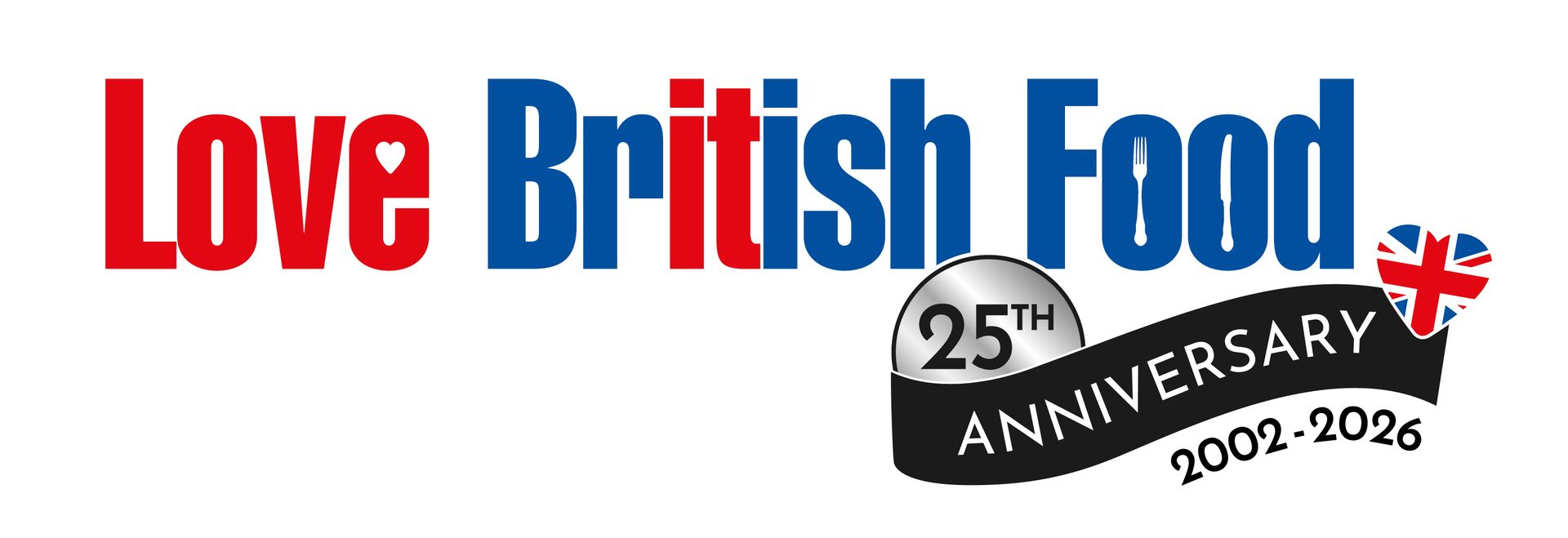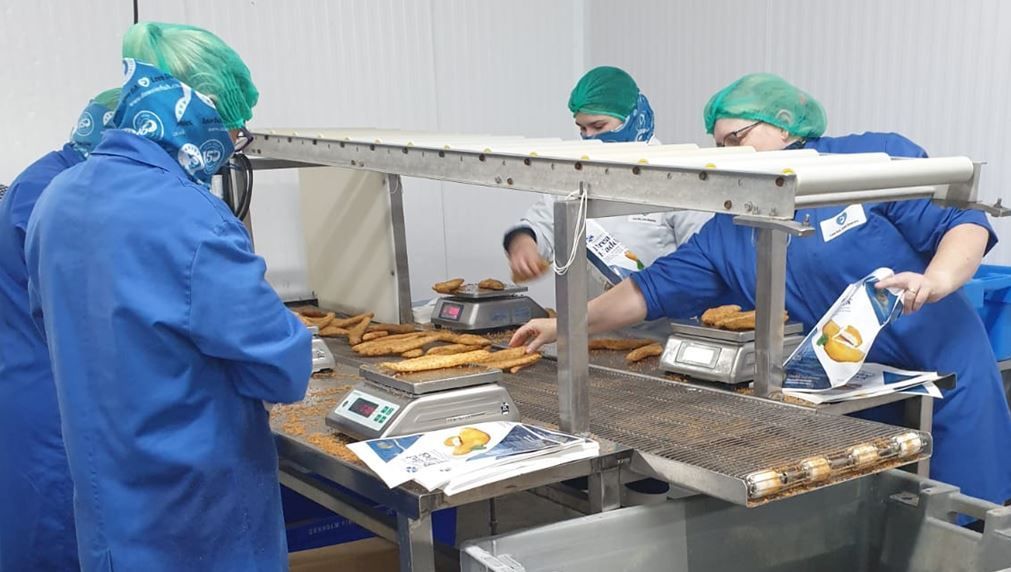The main concern from Downies at this point was their ability to cope with the volumes required, particularly for NHSGGC alone. Concerns were also raised around logistics and distribution. After careful consideration Downies decided to invest in additional equipment, staff and storage facilities.
Background
NHS Greater Glasgow & Clyde (NHSGGC) is the largest Health Board in Scotland, providing a catering service for approximately 6,000 patients each day across 4 sectors covering 16 hospital sites.
These range from small outlying units to the Queen Elizabeth University Hospital Campus, the largest Critical Care complex and Emergency Department in Europe.
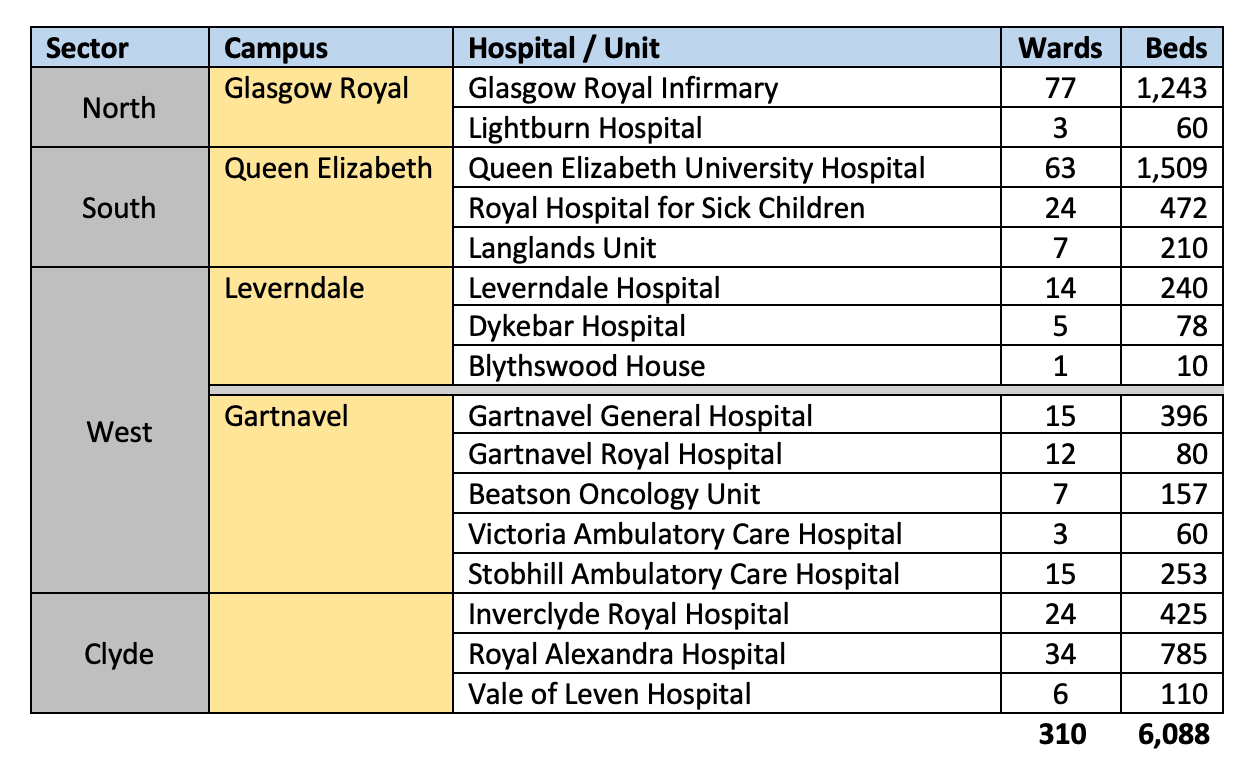
I work as Catering Business Manager within the Corporate Catering Team for NHSGGC.
The team is multi-disciplinary and includes:
- Head of Catering
- Retail Catering Lead
- Catering Business Manager
- Cook Freeze Production Unit Manager
- Strategic Dietitian
- Strategic Catering Manager
The team work continuously to improve the quality and standard of catering to patients and visitors by providing governance to each catering department across NHSGGC ensuring compliance with National Standards and regulations.
Over the years the team has been involved with several catering initiatives and projects over including:
- Refurbishment of 2 Central Production Units to a cook freeze model of food production.
- Transition to a cook freeze model of food service across the entire health board.
- Implementation of standard menus across every hospital site.
- Supply of Cook Freeze products to support another Health Board in Scotland.
- Development and trial of the current National Catering Information System.
- Introduction of Catering Public Partners to monitor and audit patient catering services.
NHSGGC deliver patient catering using standardised menus and procedures across every catering department. The majority of patient food is offered from the standard adult 2 week menu.
All hot items offered within this standard menu are produced in house from the 2 Cook Freeze Production Units (CFPUs) who produce and deliver orders to all our hospital sites. Between them the CFPUs produce over 70,000 meals each week.
The CFPUs also support with some additional items for specialised menus and retail catering. Specialised menu items that cannot be produced in house are currently purchased externally by the individual Catering Departments according to their specific patient’s dietary needs.
All of our menus are nutritionally analysed to ensure compliance with National Standards and Legislation.
Menu Planning
Menu planning for patients has become extremely challenging over the years where greater consideration must now be given to:
- Increased cost of provisions and available budget.
- Increased demand for special, alternative and religious diets.
- Compliance to national nutritional standards and legislation.
- Meeting the Scottish National “Cost per Patient Day” financial target.
Retail Catering however can be more flexible with seasonal offerings and promotions which is an ideal opportunity to promote our Scottish Food.
How we source our food
In Scotland all 14 health boards and 8 special boards source their provisions in conjunction with National Services Scotland National Procurement (NP).
NP manage the supply of provisions from third party suppliers which involves, contracting suppliers and products, management of suppliers and the supply chain. This gives NHS Scotland more control over the procurement process ensuring quality and value for each health board.
Food safety is also enhanced with regular supplier audits and inspections.
We are extremely fortunate to have a highly motivated National Commodity Manager with a wealth of knowledge and experience.
Every stage of a tender process involves the participation of the “Catering Advisory Panel” with representation from every related health board. This collaboration ensures that all boards have a voice at the table and their individual requirements are met. It is acknowledged that one size does not fit all for example rural areas in the Highlands will have very different needs to that of NHSGGC.
While we do consider finance during the procurement process the panel wholeheartedly recognise that that it is not just a cost cutting exercise. Value also relates to food quality, nutritional value, the health of our patients, sustainability and the local community. We are also extremely mindful that we are buying for the public plate with the public purse and take our responsibility very seriously.
We work in line with current Government guidance, regulations and legislation.
Including:
Procurement Reform (Scotland) Act 2014
Ensures that we focus on the wellbeing of our local areas.
All of our milk is produced and processed in Scotland.
All of our red meat is Quality Meat Scotland Assured which contributes to the efficiency, sustainability and integrity of the Scottish red meat sector and its contribution to the Scottish economy.
Good Food Nation (Scotland) Act 2022
The “Good Food Nation (Scotland) Act 2022” commits the Scottish Government, Local Authorities and Health Boards to create strategies for the sustainability of food supply and the quality of food to improve outcomes for health.
Sets out nutrition and catering criteria to ensure that NHS Boards support HIS Food, Fluid and Nutritional Care Standards.
The Catering Advisory Panel also actively work with smaller local suppliers and nominate products that can be added to our catalogues. NHSGGC use a local fishmonger to supply the CFPUs with fresh Scottish fish for our patients.
The panel also visit suppliers regularly to see where our food comes from and how it is processed/handled. It is also very useful for us to see and hear about some of the challenges our suppliers experience in terms of logistics and the current inconsistency with the ongoing supply of commodities.
Relationships with our Suppliers
Working with NP helps Health Boards to develop good relationships with our suppliers.
An example of this is described below.
NHSGGC for several years struggled to find a suitable breaded fish product for our patients which could be cooked in our food regeneration trolleys. There were several products available on the market from contracted suppliers but none were suitable, nor were they Scottish.
Directly following the Pandemic our National Commodity Manager identified a quality Scottish haddock product used in Scotland’s Schools as a possible solution. Following a successful trial of the product, a visit to Downies of Whitehills in the north of Scotland was quickly arranged. Interest from a few other Health Boards was also expressed and Borders, Fife and Grampian joined us.
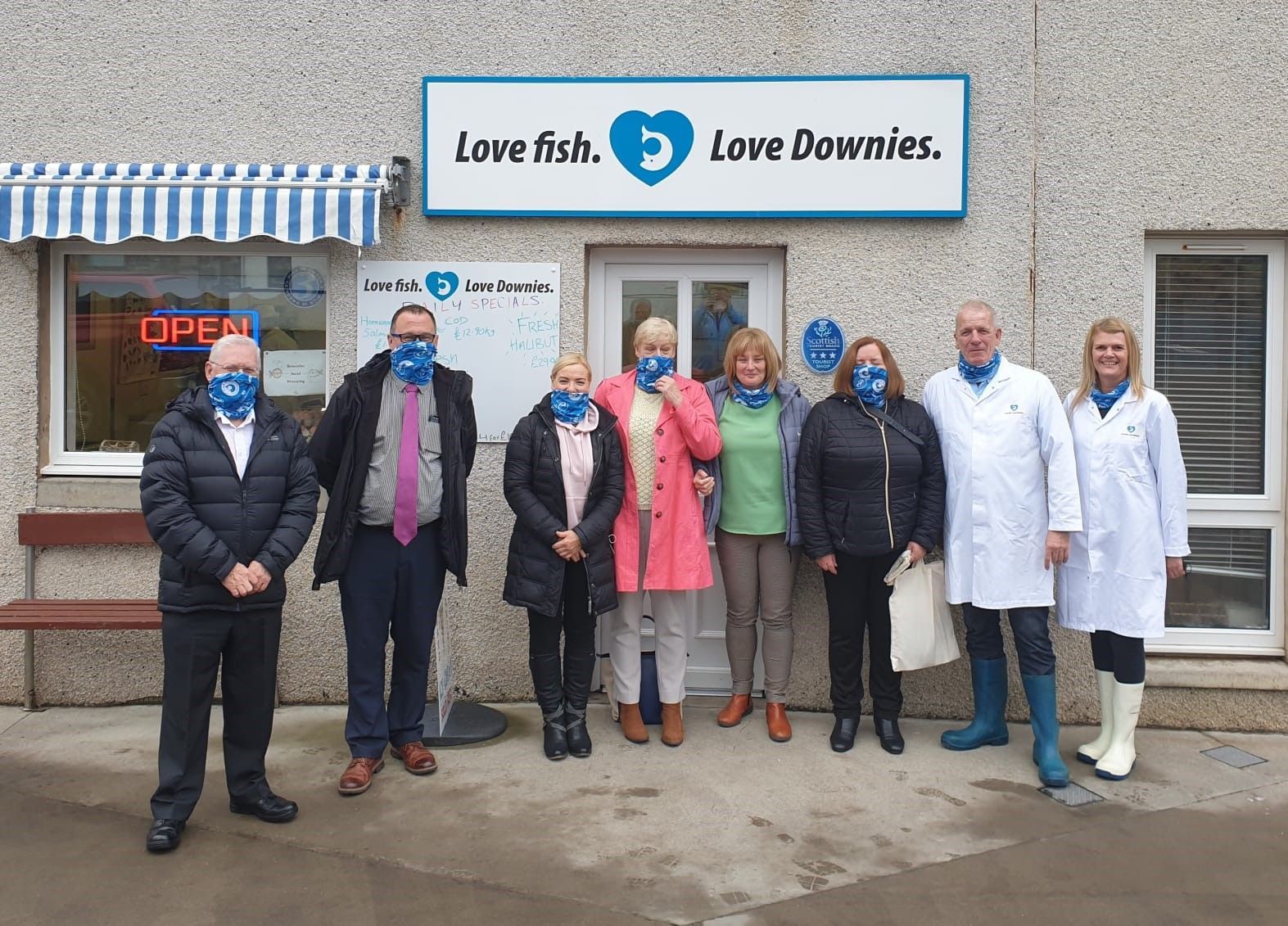
It was wonderful to see the operation in action and the icing on the cake was that this breaded fish is both landed and processed in Scotland. The Aberdeen Harbour Master also dropped in and gave us an informative talk about Scottish fishing in the area.
The visit was extremely successful. We were given a full tour of the processing unit where we observed the fresh fish being processed, blast frozen, breaded and packaged.
Following several months of collaboration between National Procurement, NHSGGC and Bidfood who offered to support with distribution, we were finally were able to supply a wonderful Scottish breaded haddock fillet to our patients.
This is an excellent example that demonstrates the value our Scottish National Procurement and collaborative working. Last year alone Downies of Whitehills supplied NHSGGC with 180,852 fillets of breaded fish for patients.
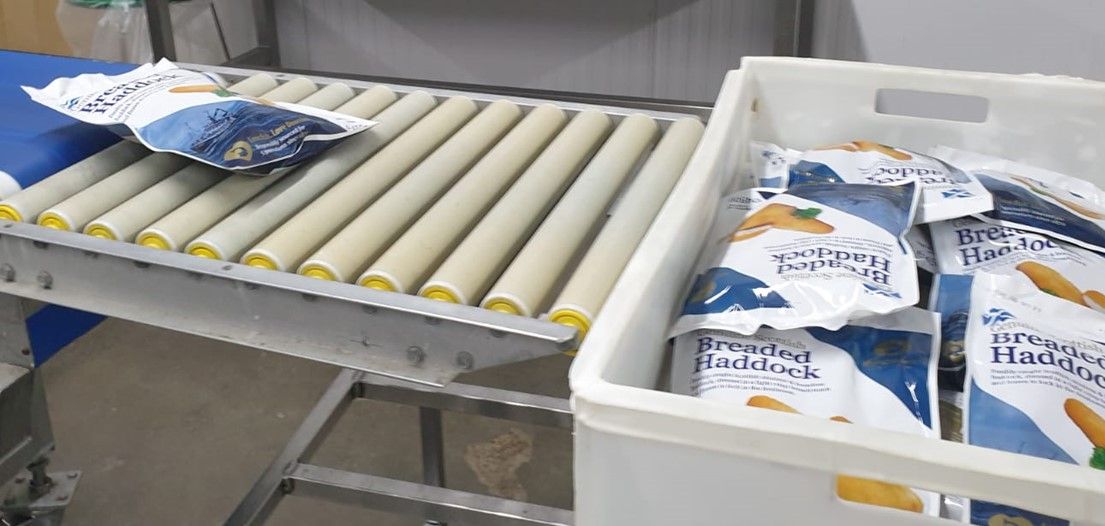
I am very proud to have contributed to several commodity tenders and initiatives over the years and place great value in how we procure our patients food in Scotland, especially in light of increasing concerns around food security.
Share:
You may also be interested in...






